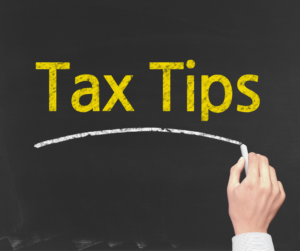Small Business Tax Tips
 Please keep in mind that all expenses you use for business are a tax deduction. Please categorize the expenses so they make sense for your business.
Please keep in mind that all expenses you use for business are a tax deduction. Please categorize the expenses so they make sense for your business.
- Keep all of your receipts; you will need them at tax time, but they are also helpful in determining your COGS (Cost of Goods) and P/LS (Profits/Losses) for the year.
- When you start your business, do not wait until the year is completed to find a financial professional who understands YOUR unique tax needs specific to your business niche
- It’s also easy to put off bookkeeping until the end of the year. Ideally, this needs to be completed monthly
- Understand at what point and how you submit quarterly tax payments
- If you work from home, remember the portion of your home that you use for business can oftentimes be a tax deduction
- If you have home landscaping and maintenance completed and you are a WFH business, this may also be deducted
- Electric, trash, phone, internet, and property taxes most of the time can be deducted
- Your Misc-1099 reports are based on your gross, not the net – for it to balance, you will need to have tax credits or deductions to offset the gross
- Receipts, receipts, receipts – they are vital!
- Any office equipment, apps, and supplies can be deducted
- If you are a product-based business – an inventory sheet needs to be created at the end of each year
- Using programs like Quickbooks or other bookkeeping apps can be invaluable and save a great deal of time
- Postage and mileage add up, make sure to log these expenses as well
When you leverage the tax credits and deductions you legally qualify for, you will be able to determine your profit margins. These small business tax tips can serve as a compass, guiding you toward financial success in entrepreneurship.
Al Depalantino, CPA
Albertjohn Depalantino & Company, PC
depalantino.com
215-345-0433
